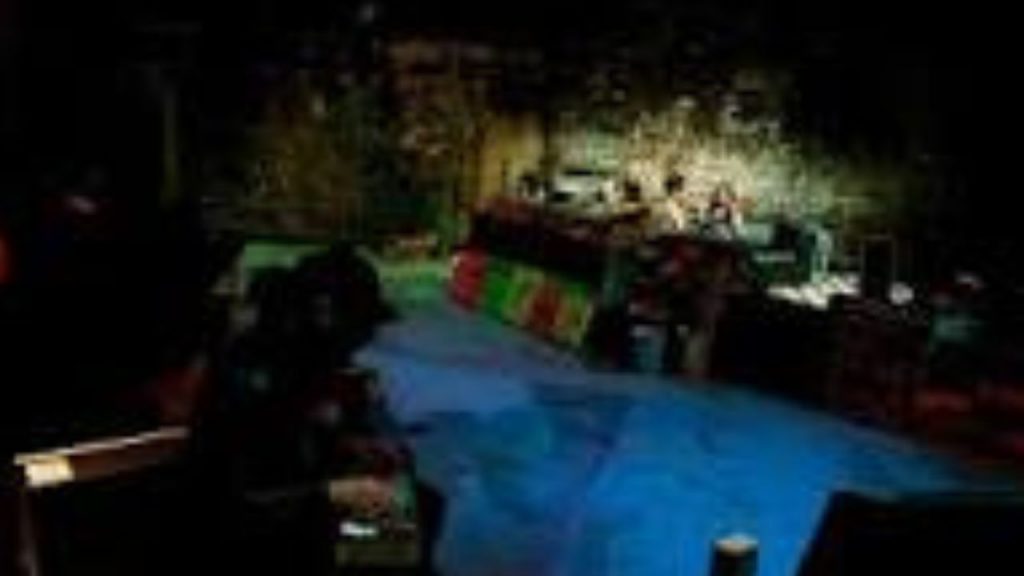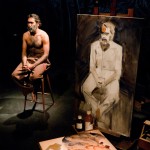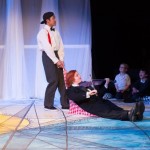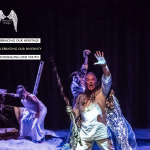Venue: Southwark Playhouse, Shipwright Yard, (Corner of Tooley St. & Bermondsey St.), London, SE1 2TF
Low Down
As Shakespeare’s comedy The Taming Of The Shrews highlights, the history of gender politics goes further into the past than the history of suffragettes and equal rights. The idea of a ‘shrew’ is steeped in a mythological ancestry in which furies of one kind or another, once provoked, go on their destructive rampage. Arguably, what Shakespeare shows us in Katherine is the shrew in modern terms, when economic power forms a decisive part of ‘love and marriage’ and aggression has feminine has well as male characteristics. Robin Norton-Hale’s production, set in Cherry Truluck’s wonderful south London market street somewhere in a mythical ‘Brixton’, cleverly builds on Shakespeare and exposes that postcodes, economics and love interests are not obstacles at all but catalysts that form a productive tension in new and prosperous ‘mixed marriages’.
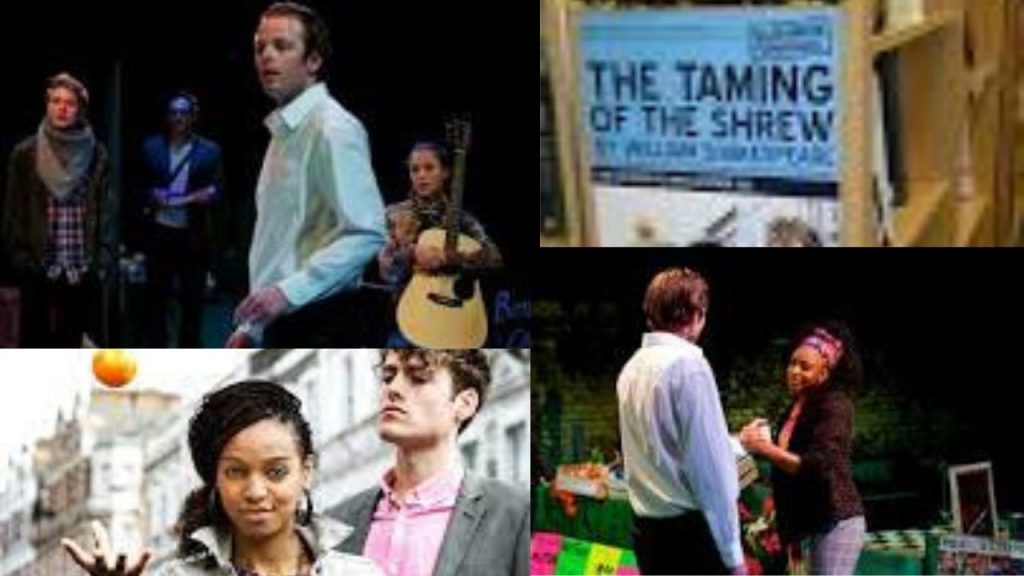
Review
From the moment you enter the main theatre at the Southwark Playhouse’s production of Shakespeare’s Shrew you observe how every audience member cannot avoid walking over some part of its huge thrust stage on which real fruit, bread and other shop items are on display and ready to be purchased. The overlapping business of shopping and staged performance is completed as actors ‘use’ the audience to purchase something to eat or hold a camera for a photo opportunity. In this way, the opening scenes of the play seamlessly fuse Shakespeare’s play world to contemporary London, a place which welcomes tourists and migrants and problematically struggles with economic and race divisions. In this setting, the tension does not erupt destructively as it did in the recent riots but overwhelmingly shows that the city’s streets are the everyday location on which cross-cultural friendships and mixed marriages and families live. It is through the latter that Robin Norton-Hale plays out her interpretation of Shakespeare classic and feisty comedy around gender politics.
Petruchio (Simon Darwen) and Katherine (Elexi Walker) are interpreted as a formidable pair of characters, both in their physical presence and in the size of their considerable egos. They are a perfect match: Katherine with her beautiful strong looks and Petruchio in his towering confidence. The zeal with which they go after what they really want in each other is all ‘animal passion’ mixed up with short term convenience. It would be something really extraordinary if this was a ‘happy ever after’ union but, regardless, they will be better off for having known each other.
By contrast, the tamer Bianca (Simone James) and the more earnest Lucentio(Will Featherstone) have a tougher road ahead of them because of their higher ideals which come with being more conformist. Like their counterparts, the two young actors take on their roles with wonderful conviction and courage. The image of Bianca sitting by herself on the sofa at the very end of the play with that ‘what-am-I-in-for-look’ seems absolutely appropriate from where I sat.
Another strength of the production can be seen in how the line of suitors (Simon Ginty, Matthew Newman, Giles Roberts) vying for Bianca’s attention encounter a desperate father (Dave Fishley) who finds controlling either of his two daughters taxing. As a result, Bianca is depicted in her strength from the outset and Katherine is shown as having more in common with her young sister than the suitors’ ever imagine. They are both willful ‘princesses’ who are used to having their own way: certainly, arguments with their dear old father are an every day event that they both take in their stride.
Cherry Truluck’s costume designs are inventive in allowing each of the characters to work through their many emotional states as they pitch and pull competitively for their ‘prize’, Bianca. With references to ‘beatnik’ fashion (as seen in Hortensio’s disquise) and to the 1970s, ultimately the costumes evoke the robust hit-and-miss festival of young attraction and love in which all the characters participate.
My one reservation in the production was in the choice to cross-dress Grumio as a woman. This is not to say that Sarah Winn acted the role with any less energy or talent than the rest of the case. I just could not see what was added to the audience’s understanding of the play through the choice to play Grumio as a woman. In fact, at times it detracted from the drama. For instance, the strength of such scenes as the ‘let’s starve Katherine into submission’ when she first arrives in Petruchio’s house I believe was weakened by not having an Arlecchino-like male servant who in a sense is more cruel than his master.
Perhaps this last point remains an academic consideration as the production is wonderful to view and deserves a sell-out season. Its presentation of gender politics will undoubtedly call up much discussion, debate and laughter.
Reviewed by Josey De Rossi Friday 7th October 2011
Website :
http://southwarkplayhouse.co.uk/
